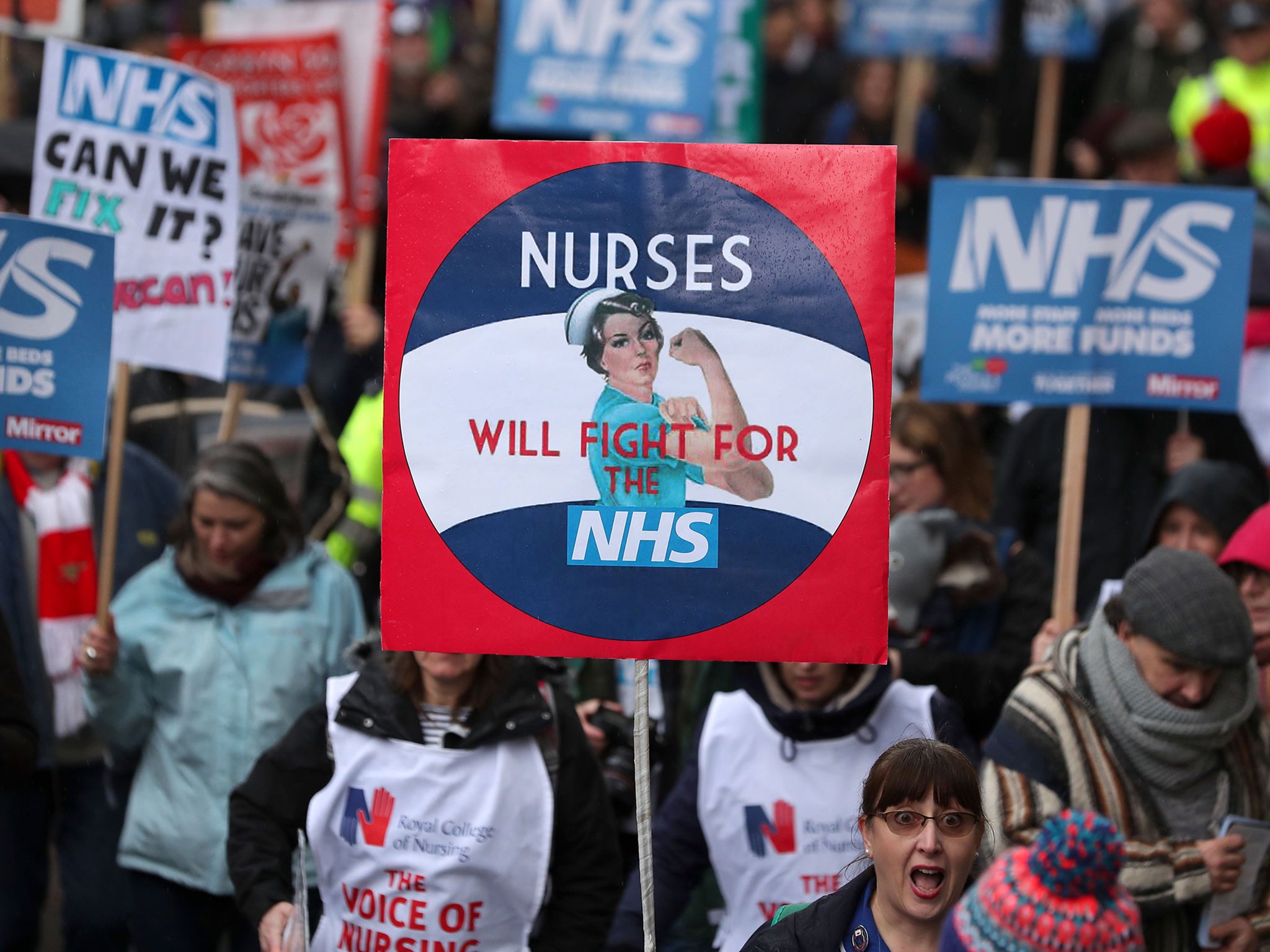'Botched Brexit' causing thousands of EU nurses to quit NHS as workforce shrinks for second year running
Drop adds to 40,000 staff deficit, despite government schemes to recruit nurses from abroad and attract students by cutting bursaries

Your support helps us to tell the story
From reproductive rights to climate change to Big Tech, The Independent is on the ground when the story is developing. Whether it's investigating the financials of Elon Musk's pro-Trump PAC or producing our latest documentary, 'The A Word', which shines a light on the American women fighting for reproductive rights, we know how important it is to parse out the facts from the messaging.
At such a critical moment in US history, we need reporters on the ground. Your donation allows us to keep sending journalists to speak to both sides of the story.
The Independent is trusted by Americans across the entire political spectrum. And unlike many other quality news outlets, we choose not to lock Americans out of our reporting and analysis with paywalls. We believe quality journalism should be available to everyone, paid for by those who can afford it.
Your support makes all the difference.The government’s “botched Brexit” caused 10 per cent of the NHS European nurse workforce to quit last year, meaning attempts to increase the nursing workforce have failed for the second year running.
Official figures from the Nursing and Midwifery Council (NMC) show that in 2018, there were 3,000 fewer nurses from the European Economic Area working in the NHS than a year ago.
The Royal College of Nursing said the decrease in new nurses joining from Europe, and an increase in the number of nurses quitting, was down to the government “botched” attempt to use EU citizens’ future UK residency as a negotiating tool, refusing to confirm whether they would be allowed to remain.
Just 800 EU nurses came to the UK last year, compared to 6,382 in 2016/17 and 9,389 in the year of the Brexit vote. Nearly 4,000 nurses left last year.
Nursing representatives said there was a “faint glimmer of hope” in the increase of UK nurse numbers – but that in the context of an exodus of EU and UK staff, and a drop in UK students, “the future looks bleak”.
There were 690,278 nurses and midwives registered in the UK at March 2018, a decrease of 495 on the previous year. This comes at a time when the NHS is pulling out all the stops to recruit staff for 40,000 vacant posts.
This week the Department of Health and Social Care announced a deal with the Jamaican government inviting nurses to the UK to do NHS placements, in order to increase the workforce by 5,500 staff.
Meanwhile, a government plan to boost the number of trainee nurses by replacing NHS-funded bursaries with £9,000 a year fees and loans has caused a drop of 700 students last year.
The annual report by the NMC, which draws data from its list of nurses and midwives who must be registered to work in the UK, found that the number of midwives increased by 495.
It also found an increase in numbers from outside the European Economic Area, helped in part by the “earn, learn, and return” programme, which is already running in India in advance of the deal with Jamaica and, in future, the Philippines.
The NMC surveyed nearly 3,500 nurses on why they were quitting the register.
“We asked people why they were leaving, and for the small number of EU nurses and midwives who responded it’s clear that Brexit is playing a part, while retirement and staffing levels are clear factors in the decision of UK nurses and midwives to leave the profession,” said Jackie Smith, the NMC’s chief executive.
Janet Davies, chief executive of the Royal College of Nursing said: “It feels that efforts to boost the number of nurses are being dragged down by a botched Brexit.
“As the overall number of nursing staff falls again, it is patients who will worry the most.”
This week, nurses, midwives and other NHS-employed staff began voting on a pay deal that could pay rises above 1 per cent for the first time in three years, and might help hold onto staff.
Unison head of health, Sarah Gorton, who led the trade union negotiations in the pay deal, said: “The small rise in the number of home-grown nurses provides the faintest glimmer of hope, but it’s still way short of what’s needed to provide the care required. And with student numbers down, the future looks bleak.”
A Department of Health and Social Care spokesperson said: “It is encouraging to see the highest increase in the number of nurses and midwives from the UK joining the register for the first time in four years.
“We know staff have never worked harder, which is why we gave a pay rise to more than 1.2 million dedicated workers in the Agenda For Change pay deal, continue to work to improve retention and flexible working and have created thousands more training places to increase the number of nurses in the future.”
Join our commenting forum
Join thought-provoking conversations, follow other Independent readers and see their replies
Comments